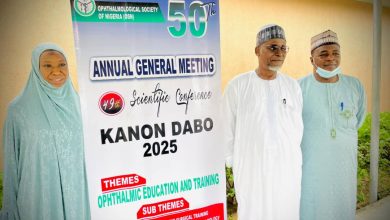Over 24,000 Nigerians Declared Missing, ICRC Reveals

The International Committee of the Red Cross (ICRC) has revealed that more than 24,000 Nigerians are currently listed as missing by their families.
María Toscano, ICRC’s Protection of Family Links Team Leader, disclosed the figures during a media workshop held in Maiduguri. She revealed that Borno State alone accounts for the highest number of missing persons, with approximately 9,000 out of the 16,000 cases registered by the ICRC in the North-East region.
Toscano noted that while the organization continues its efforts to trace the missing individuals, progress has been slow. So far in 2025, 11 people have been successfully reunited with their families, adding to the 13 persons reunited in 2024.
Read Also:
UNICEF, KASPA Forge Stronger Ties to Improve Social Protection Outcomes in Kano
She further stated that 71 percent of the 24,000 registered cases occurred between 2014 and 2015, the peak period of insurgency-related violence in the region. Bama Local Government Area in Borno alone accounts for about 5,000 of the missing persons.
According to her, children make up a significant portion of the cases, with 65 percent of those declared missing in the North-East being minors at the time of their disappearance.
Toscano also highlighted the challenges faced by the ICRC in tracing missing persons, including limited access to conflict-affected areas and difficulties in reaching families due to security and communication constraints.
Earlier at the workshop, the Head of ICRC’s Sub-Delegation in Maiduguri, Diana Japaridze, expressed concern over the rising number of families still searching for loved ones after years of displacement caused by armed conflict.
“Some people spend years searching for loved ones, often with no result. Families have a right to know their fate,” Japaridze said. “In the chaos of armed conflict, violence, and disasters, families can become separated in a matter of minutes, creating anguish and uncertainty especially when children, spouses, or parents go missing.”
She called on media practitioners to play an active role in raising awareness about missing persons and in amplifying the voices of affected families.
“While states should raise public awareness of the problem of missing persons as a fundamental concern under international humanitarian and human rights law, the mass media must draw the public’s attention to this issue and the needs of families left behind,” she said.
Japaridze added that the workshop aimed to equip journalists with better tools to research the topic, ask meaningful questions, and report with empathy, accuracy, and professionalism.
(NAN)



